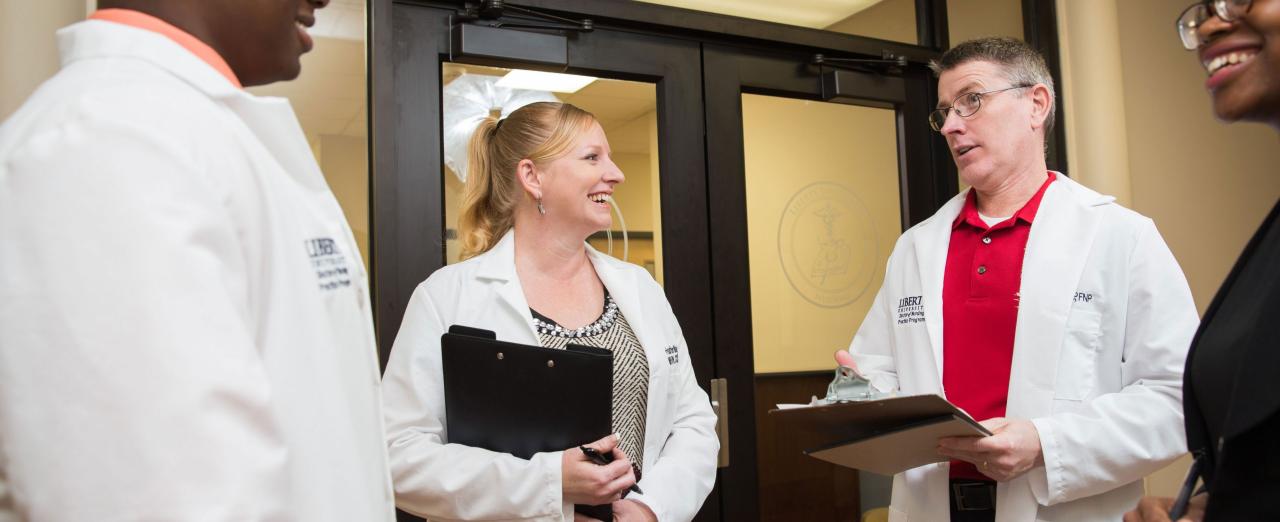
- Overview of Bachelor of Public Health (BPH)
- Core Curriculum of a BPH Program
- Specializations within a BPH Program
- Skills and Competencies Developed in a BPH Program
- Career Opportunities for BPH Graduates
- Continuing Education and Professional Development for BPH Graduates
- Future Trends in Public Health and the Role of BPH Graduates
Overview of Bachelor of Public Health (BPH)
A Bachelor of Public Health (BPH) degree focuses on the science and art of preventing disease, prolonging life, and promoting health through organized efforts and informed choices of society, organizations, public and private, communities and individuals. The program prepares students to become public health professionals who can work in various settings, including government agencies, non-profit organizations, and private companies.
Career Paths
Graduates with a BPH degree can pursue various career paths, including:
- Health Educator
- Epidemiologist
- Public Health Administrator
- Community Health Worker
- Environmental Health Specialist
Core Curriculum of a BPH Program
A Bachelor of Public Health (BPH) program provides a solid foundation in the core principles and practices of public health. The curriculum is designed to equip students with the knowledge, skills, and competencies necessary to address the complex health challenges facing communities today.
The core curriculum typically includes foundational courses in the following areas:
- Epidemiology: The study of the distribution and determinants of health-related states or events in a population.
- Biostatistics: The application of statistical methods to health data to make inferences about population health.
- Environmental Health: The study of how the environment affects human health and how to prevent or mitigate environmental health hazards.
- Health Behavior: The study of the factors that influence health-related behaviors and how to promote healthy behaviors.
- Health Policy and Management: The study of the development, implementation, and evaluation of health policies and programs.
- Social and Behavioral Sciences: The study of the social, cultural, and behavioral factors that influence health and well-being.
These core courses provide students with a comprehensive understanding of the key concepts and methods used in public health practice. They also develop the critical thinking, problem-solving, and communication skills necessary to effectively address public health challenges.
Specializations within a BPH Program
A Bachelor of Public Health (BPH) program provides students with a comprehensive understanding of public health principles and practices. To cater to the diverse interests and career aspirations of students, many BPH programs offer specializations that allow them to delve deeper into specific areas of public health.
These specializations provide students with advanced knowledge and skills in their chosen fields, preparing them for careers in various public health settings. Let’s explore some of the common specializations offered within BPH programs.
Epidemiology
Epidemiology is the study of the distribution and determinants of health-related states or events (including disease), and the application of this study to the control of diseases and other health problems. Courses in epidemiology cover topics such as:
- Principles of epidemiology
- Data collection and analysis
- Epidemiologic methods
li>Environmental and occupational epidemiology
Research opportunities in epidemiology may include:
- Investigating the causes of disease outbreaks
- Evaluating the effectiveness of public health interventions
- Developing new methods for disease surveillance
Skills and Competencies Developed in a BPH Program

Graduates of Bachelor of Public Health (BPH) programs acquire a comprehensive range of skills and competencies that equip them for successful careers in the field of public health.
These skills include:
Technical Skills
- Data analysis and interpretation
- Epidemiology
- Biostatistics
- Health promotion and education
- Policy analysis
li>Environmental health
Communication Skills
- Written and verbal communication
- Interpersonal and intercultural communication
- Public speaking
Critical Thinking Skills
- Problem-solving
- Decision-making
- Critical analysis
Leadership Skills
- Teamwork
- Project management
- Advocacy
Ethical Skills
- Ethical decision-making
- Cultural sensitivity
- Respect for diversity
The following table Artikels these skills and their relevance in the field of public health:
| Skill | Relevance in Public Health |
|---|---|
| Data analysis and interpretation | Analyzing and interpreting data to identify trends, patterns, and risk factors in population health |
| Epidemiology | Investigating the distribution and causes of diseases and other health conditions |
| Biostatistics | Applying statistical methods to analyze and interpret health data |
| Environmental health | Protecting human health from environmental hazards |
| Health promotion and education | Promoting healthy behaviors and educating the public about health issues |
| Policy analysis | Analyzing and evaluating health policies and programs |
| Written and verbal communication | Communicating effectively with colleagues, stakeholders, and the public |
| Interpersonal and intercultural communication | Working effectively with people from diverse backgrounds |
| Public speaking | Presenting information and ideas clearly and persuasively |
| Problem-solving | Identifying and solving problems related to public health |
| Decision-making | Making informed decisions based on evidence and ethical principles |
| Critical analysis | Evaluating the strengths and weaknesses of different perspectives and arguments |
| Teamwork | Working effectively as part of a team |
| Project management | Planning, organizing, and implementing public health projects |
| Advocacy | Representing the interests of the public in health policy and decision-making |
| Ethical decision-making | Making ethical decisions in the context of public health |
| Cultural sensitivity | Understanding and respecting the cultural beliefs and practices of different populations |
| Respect for diversity | Valuing and respecting the diversity of perspectives and experiences in public health |
Career Opportunities for BPH Graduates
Graduates with a Bachelor of Public Health (BPH) degree have a wide range of career opportunities in various sectors. Their comprehensive knowledge in public health principles, epidemiology, biostatistics, and health policy equips them to address critical health issues and improve population health outcomes.
BPH graduates can pursue careers in:
Public Health Organizations
- Epidemiologist: Investigate disease outbreaks, patterns, and risk factors to develop prevention and control measures.
- Health Educator: Design and implement health promotion and disease prevention programs for communities and individuals.
- Public Health Administrator: Manage and oversee public health programs and services, including planning, implementation, and evaluation.
Healthcare
- Clinical Research Coordinator: Assist in conducting clinical trials and research studies in healthcare settings.
- Health Policy Analyst: Analyze health policies, laws, and regulations to assess their impact on population health.
- Health Informatics Specialist: Use technology and data to improve health information management and decision-making.
Non-Profit and Advocacy Groups
- Program Manager: Plan, implement, and evaluate health-related programs for underserved populations.
- Policy Advocate: Influence public health policies and advocate for health equity and social justice.
- Community Organizer: Engage communities in health initiatives and empower them to improve their health outcomes.
Education
- Health Education Teacher: Teach health education in schools and community settings.
- Public Health Researcher: Conduct research to advance knowledge in public health and contribute to evidence-based practice.
- Professor: Teach and mentor students in public health programs at colleges and universities.
Examples of Successful BPH Graduates
- Dr. Anthony Fauci: Director of the National Institute of Allergy and Infectious Diseases, renowned for his leadership in HIV/AIDS research and the COVID-19 pandemic.
- Dr. Tom Frieden: Former Director of the Centers for Disease Control and Prevention, instrumental in improving public health initiatives worldwide.
- Michelle Obama: Former First Lady of the United States, advocate for healthy eating and physical activity through her “Let’s Move!” campaign.
Continuing Education and Professional Development for BPH Graduates
Continuing education is paramount for BPH graduates to stay abreast of advancements in public health practices, research, and policy. Continuous professional development helps maintain their knowledge, skills, and competencies, ensuring they remain effective and relevant in the field.
Professional Development Opportunities
- Conferences and workshops: Industry-specific conferences and workshops provide opportunities for networking, knowledge sharing, and staying updated on the latest research and trends.
- Online courses and certifications: Many institutions offer online courses and certifications in specialized areas of public health, allowing graduates to expand their knowledge and skills.
- Mentorship and shadowing: Seeking mentorship from experienced professionals in the field provides invaluable guidance and insights into best practices.
Certifications and Accreditations
Certifications and accreditations demonstrate a graduate’s commitment to maintaining high standards of professional practice. These credentials enhance credibility and may be required for certain job roles or promotions.
- Certified Public Health (CPH): A nationally recognized credential that signifies proficiency in the core areas of public health.
- Certified Health Education Specialist (CHES): A certification for professionals who work in health promotion and education.
- National Environmental Health Association (NEHA) Certifications: NEHA offers various certifications in environmental health, including Certified Environmental Health Specialist (CEHS) and Certified Food Safety Professional (CFSP).
Future Trends in Public Health and the Role of BPH Graduates
Public health is constantly evolving, and BPH graduates play a vital role in addressing emerging challenges. Future trends in public health include:
- Increased focus on health equity
- Growing importance of data and technology
- Rise of chronic diseases
- Climate change and its impact on health
These trends have implications for BPH graduates, who need to be prepared to work in a rapidly changing field. They must have a strong foundation in public health principles, as well as specialized knowledge in areas such as:
- Epidemiology
- Biostatistics
- Health policy
- Environmental health
BPH graduates also need to be able to use data and technology to solve public health problems. They must be able to communicate effectively with a variety of audiences, and they must be able to work in a team environment.
The Evolving Role of BPH Graduates
As public health evolves, so too does the role of BPH graduates. In the future, BPH graduates will be expected to play a leading role in:
- Developing and implementing public health policies
- Conducting research to improve public health outcomes
- Educating the public about health issues
- Advocating for health equity
BPH graduates will also be needed to work in a variety of settings, including government agencies, non-profit organizations, and private businesses. They will need to be able to adapt to changing needs and to work with a variety of partners to improve public health.





